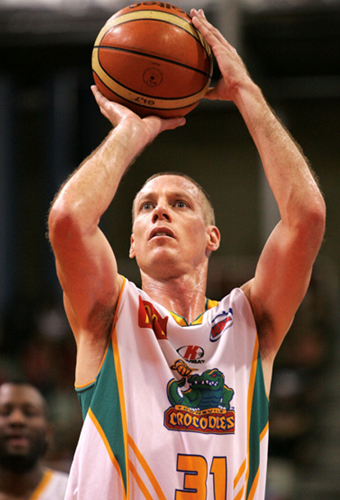In terms of basketball culture, how does Australia differ from the US?
In Australia, obviously individuals are motivated to succeed, but there’s a strong team culture. In the US, I would say individuals are more motivated to see where their own success is going to get them. I’m talking in generics here, but in the US, kids are transferring schools to go somewhere where they think the situation is going to be better for them.
In Australia, the way that sports are built, very few kids feel like they need to leave the area that they grew up in to be successful.
How did you become part of this year’s Australian Olympic basketball team?
To start with, there was a newly appointed coach to this campaign for the Olympics: the head coach that I played for at the 2004 Olympics. So once he got appointed to that position, I was eager to be involved with the national team. Our lead up to Tokyo was based in the US, so the first training camp was in Irvine, California.
I reached out to him and said anything that I could be involved with, I was happy to do—fill water bottles, wipe sweat off the floor, rebound, anything necessary just to be involved. I got invited to be part of it all in practice in Irvine, but initially I was not part of the team scheduled to travel to Tokyo. Then, unfortunately, one of the assistant coaches tore his Achilles at practice. He stepped down and I was fortunate enough to be called up.
On social media, you’ve suggested that this Olympics was more meaningful for you than the one you attended as a player, even apart from winning a medal.
What I learned from my playing experience is that sometimes you think something will just continue to happen over time. I went to 2004, it was disappointing. I thought, there’ll be another opportunity that will come along. As I matured, and got into coaching, I realized I was better off just trying to appreciate the opportunity that’s right in front of me.
I was very fortunate for the opportunity, so I certainly wanted to put my best foot forward. Be grateful and be mindful, and just take the experience for what it was. I think sometimes athletes get so involved in the process that they forget to enjoy what they’re doing as they go along.

John Rillie playing for the Townsville Crocodiles in February 2009.

